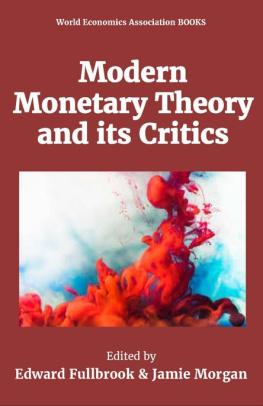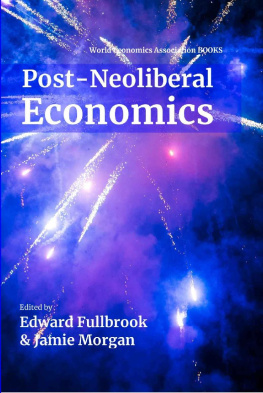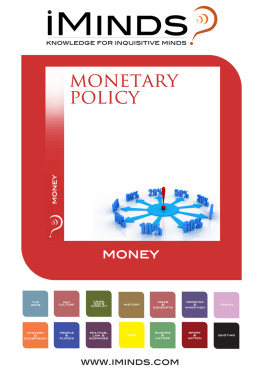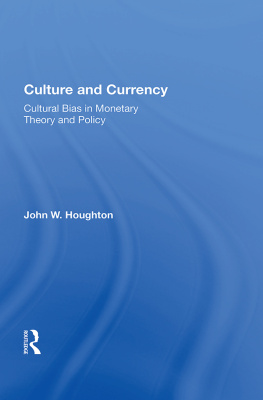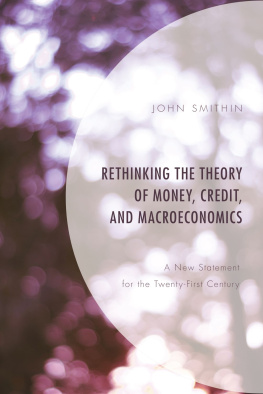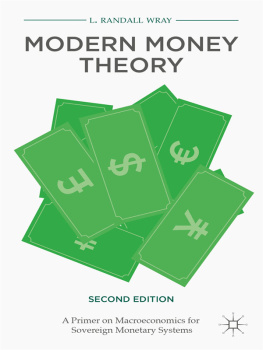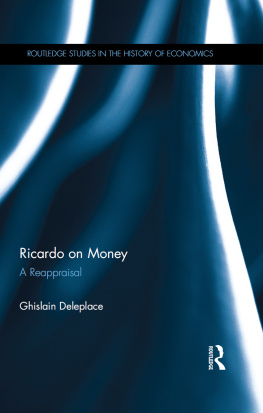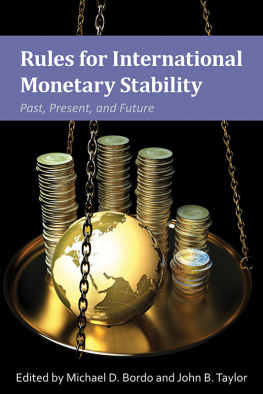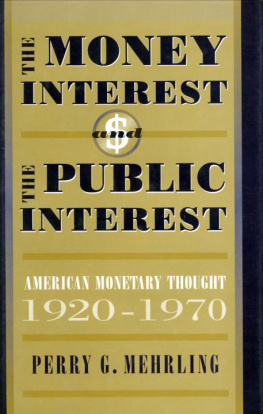Edward Fullbrook - Modern Monetary Theory and its Critics
Here you can read online Edward Fullbrook - Modern Monetary Theory and its Critics full text of the book (entire story) in english for free. Download pdf and epub, get meaning, cover and reviews about this ebook. year: 2020, publisher: WEA, genre: Romance novel. Description of the work, (preface) as well as reviews are available. Best literature library LitArk.com created for fans of good reading and offers a wide selection of genres:
Romance novel
Science fiction
Adventure
Detective
Science
History
Home and family
Prose
Art
Politics
Computer
Non-fiction
Religion
Business
Children
Humor
Choose a favorite category and find really read worthwhile books. Enjoy immersion in the world of imagination, feel the emotions of the characters or learn something new for yourself, make an fascinating discovery.
- Book:Modern Monetary Theory and its Critics
- Author:
- Publisher:WEA
- Genre:
- Year:2020
- Rating:3 / 5
- Favourites:Add to favourites
- Your mark:
Modern Monetary Theory and its Critics: summary, description and annotation
We offer to read an annotation, description, summary or preface (depends on what the author of the book "Modern Monetary Theory and its Critics" wrote himself). If you haven't found the necessary information about the book — write in the comments, we will try to find it.
This stimulating book provides a clear account both of what Modern Monetary Theory entails and of the many objections to it. Its great value is that it will make readers have to think for themselves through many fundamental issues of macro-economic theory and policy. - Charles Goodhart, London School of Economics
The merits of Modern Monetary Theory have become the most contentious issue in Post Keynesian macroeconomics. This remarkable volume presents the full range of opinions on MMT, from its enthusiastic proponents to its severest critics, with intermediate positions (critical support; sympathetic scepticism) also being set out. The book is essential reading for everyone with an interest in heterodox macroeconomic theory and policy. - John King, La Trobe University & Federation University Australia
Recently Modern Monetary Theory has generated a lot of heat in newspaper columns and blogs, but relatively little in the way of light. This collection offers an urgently required, more considered treatment, challenging readers to think about the role, sources and implications of sovereign currency and money creation as social processes. The volume addresses the crucial question of what MMT would mean for practical workable policy agendas and the design and function of macroeconomic governance at an epochal moment when the future of the planet and social order is at stake. - Andrew P. Baker, Sheffield University, UK
Modern Monetary Theory has found its moment in the sun. One advocate, Stephanie Kelton, is chief economic advisor to Bernie Sanders; Forbes, The New Yorker, and many newspapers, have published pieces on it. This balanced and readable collection is an excellent place to go for those wanting to understand this economic doctrine. - Steven Pressman, Colorado State University & Co-editor, Review of Political Economy
So much has been written about MMT in the press that one gets at best a superficial understanding of its rich and penetrating implications. Criticism from this circle tends, as a result, to be ill-informed and misleading. Not true of the current volume, however. Here we find honest and carefully considered critiques and affirmations of what may stand as the foundation of a progressive and forward-looking transformation of advanced market economies. - Roy J. Rotheim, Skidmore College, US
Contributions from: L. Randall Wray, Trond Andresen, Phil Armstrong, Bruno Bonizzi, Annina Kaltenbrunner & Jo Michell, David Colander, Paul Davidson, Dirk H. Ehnts & Maurice Hfgen, Jan Kregel, Marc Lavoie, Tony Lawson, Anne Mayhew, Richard Murphy, Thomas I. Palley, Louis-Philippe Rochon, Malcolm Sawyer, Alan Shipman, Jan Toporowski, Jamie Morgan & Edward Fullbrook.
Edward Fullbrook: author's other books
Who wrote Modern Monetary Theory and its Critics? Find out the surname, the name of the author of the book and a list of all author's works by series.

